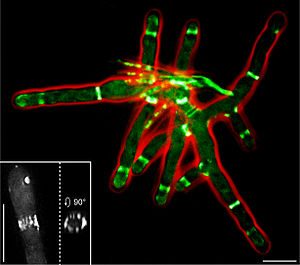We’re all hosts on a viral planet.
 And no, antiviral Kleenex won’t do much.
And no, antiviral Kleenex won’t do much.
Erin Biba of The Daily Beast writes that you’ve probably spotted antiviral tissues in the paper goods aisle at your local grocery store. And if you’ve got any kind of science-focused Spidey sense it’s entirely possible they’ve set off pseudoscience alarm bells.
After all, antivirals are usually reserved for prescription-only medications that are used to treat the only most dire cases of flu. And, while you’re right to be skeptical (because honestly we should all always be skeptical of everything), digging into the science reveals antiviral tissues actually do what they claim and inactivate viruses.
Manufactured by Kleenex, and on store shelves since 2004, antiviral tissues are actually patented and approved by the EPA. While their ingredients do not include prescription antiviral medications, the active substances inside the tissues are citric acid and sodium lauryl sulfate, a chemical found in many soaps.
Though the packaging claims to “kill” viruses, what these substances actually do is inactivate them because viruses aren’t alive—they just hijack our cells for their own purposes. In fact, according to Vincent Racaniello, a microbiologist and virus expert at the Mt. Sinai School of Medicine of CUNY, has personally seen citric acid actually “exploding” viruses upon contact in his lab.











